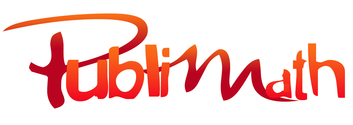History and epistemology in mathematics education: proceedings of the 5th European Summer University. Navigation Instruments and Teacher Training. p. 587-594.
(Instruments de navigation et formation des enseignants.)
Une version texte intégral est en téléchargement sur le site Bibliothèque numérique des IREM et de l’APMEP Télécharger
Auteur : Morey Bernadette
Résumé
L’objectif de cet article est de présenter et discuter de la viabilité et des implications du fait d’enseigner les mathématiques à l’aide d’une application historique des concepts trigonométriques. Le contexte historique exploré ici est celui des navigations portugaises des XIVe-XVIIe siècles, en particulier les techniques de recherche de la position des bateaux en mer, avec une insistance particulière sur l’un des instruments utilisés à cette époque: le bâton de Jacob. Les concepts mathématiques dont nous parlons sont ceux liés à l’angle et à la tangente. Abstract The objective of this article is to present and to argue the viability and implications of teaching mathematics with the help of an historical application of trigonometrical concepts. The historical context explored here is the Portuguese navigations in the XIV-XVII centuries, especially the tech-
La présente étude s’intéresse à la formation initiale et continue des enseignants de mathématiques et montre que l’enseignement des mathématiques dans cette perspective est non seulement réussi du point de vue de l’apprentissage des mathématiques, mais contribue également à une éducation plus large des enseignants de mathématiques, mais certaines difficultés de cette approche sont également soulignées.
niques of finding the position of boats at sea, with special emphasis on one of the instruments used at that time: the cross staff. The mathematical concepts we speak of are those related to angle and to tangent. The present study focuses attention on the initial and continuing formation of mathematics
teachers and shows that the teaching of mathematics in this perspective is not only successful from the point of view of learning of mathematics but also contributes to a wider education for mathematics teachers. The article calls attention to the fact that the treatment of the mathematical concepts
has to be done with extreme care so as not to risk losing the aspects related to the learning of the proper mathematical concepts. Some difficulties with this approach are also highlighted.
Notes
Chapitre des Actes de la cinquième université d’été (ESU 5).
Données de publication
Éditeur Vydavatelsky Press Prague , 2008 Format 14,8 cm x 21 cm, p. 587-594 Index Bibliogr. p. 594-594
ISBN 80-86843-19-X EAN 9788086843193
Public visé chercheur, enseignant, formateur
Type chapitre d’un ouvrage Langue anglais Support papier
Classification
